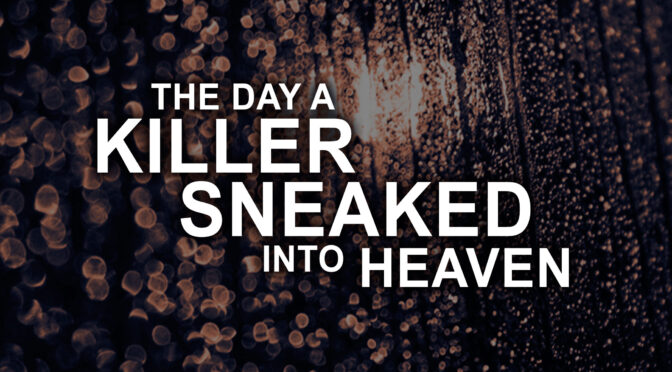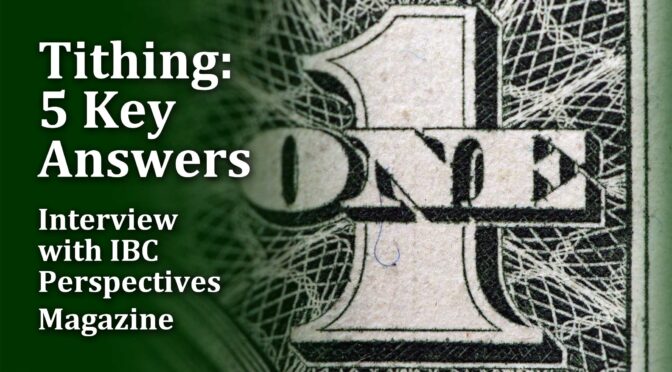One day a killer sneaked into heaven.
How? By the mercy and grace of God, of course.
But why would a forgiven soul ever need to sneak in? Because a forgiven soul knows the forgiveness, knows their trespass which required it, and knows the price that was paid to grant it. The very last thing a forgiven soul would ever do is stroll into heaven like one who “owns the place”—like one who did not need mercy and grace to get there.
As I was saying, one day a killer sneaked into heaven.
Oh, the meetings with saints of ancient ages! Samuel, the prophet, was so wise and so careful with his words! Mordecai was so inspiring with his faith and stories of determination! Peter and John and all the disciples of the Lord Jesus practically glowed. Maturity and wisdom emanated from them with such love. Yet the chance to meet King David was particularly welcomed. What a balm it was to meet a fellow killer, one who had likewise inflicted wrongful death, yet was granted mercy and grace, and through forgiveness managed to hobble along fairly successfully through the remainder of his earthly life, writing songs (psalms) and seeking to regain the place with God he once had and lost.
Then the killer encountered an unexpected class of people: Joyful souls of aborted babies. Millions upon millions of them played and laughed on a velvet verge of grassy meadows beneath solemn mountains and serene skies. There, playing among them, was the precious girl this person had killed, in a signally selfish yet “safe and legal” procedure.
The forgiven soul (the formerly selfish soul) longed to hold the girl, longed be with her. Just as that longing foot was lifted in the girl’s direction, a voice spoke up nearby.
“You can’t,” said the voice, with both authority and anguish melted together in love. “Not until you realize that she cannot know.”
“But…” the forgiven soul stammered.
“These little ones have been spared the agony of being unwanted. They don’t know. She has never known that her life on earth was extinguished. She has never known that the precious gift of life—her intended life on earth—was once counted as less than convenience and culture and campaigning and coy sloganeering. You may only approach her once you are committed to not infecting her with the agony of her having been unloved.”
“So, I cannot tell her who I am? This is hell then, not heaven! I’ve not yet been forgiven,” said the forlorn yet forgiven soul. “I somehow feared it couldn’t be true.”
“No,” said the voice. “If this were hell, you would be freely permitted to inflict all manner of suffering in her heart, and then suffer in your own heart over having made her suffer. She would eventually retaliate. It is because this is heaven and not hell that such a thing will not be permitted. Because this is heaven, you may go and be with her, but only as a stranger, at first, with no past. For her there is no past to be forgotten. The past you would seek to bring her is buried beneath The Blood, and unworthy of the bringing. Leave it behind, and then you may be with her.”
After a long pause (while considering all the ramifications with a clarity that was seldom possible back on earth) the forgiven soul finally asked, “Will there ever be a time, a thousand years from now, or a million—will there ever be a point when she might finally know and yet not suffer? Will there ever be a time when a billion years of me loving her would finally empower her to hear that painful past spoken without suffering over it?”
“If such a day were to ever come…” said the voice. “Yet on such a day, you would most likely have left that past buried for so long and be so far removed from it, that you will have lost all the want to drag it up from the depths of forgetting. You will most likely no longer wish to tell it.”
“I understand.”
“Then you may go to her.”
“Death and life are in the power of the tongue: and they that love it shall eat the fruit thereof” (Proverbs 18:21 KJV).
A personal note from the author, Pastor Doug Joseph:
Today, January 17, 2016, is this year’s Sanctity of Human Life Sunday. During this annual event (on the third Sunday, the one nearest on the calendar to the anniversary of the infamous Roe v. Wade decision by the US Supreme Court), we set aside time to mourn the millions and millions of human babies lost via abortions, to pray for an end to abortion, and to reflect on and teach about the sanctity of human life, which, as a godly principle, goes deeper even than just the issue of abortion, affecting how we stand on everything from opposing euthanasia and assisted suicide, to advocating for compassionate love for children facing handicaps and for people facing various challenges and limitations. Being Pro-Life is about much more than opposing wrongful deaths. It is about loving life, and upholding the dignity of human life as a sacred gift from God. I hope you will join with me today in a generous donation to West Virginians For Life or your state’s affiliate of the National Right To Life Committee.







